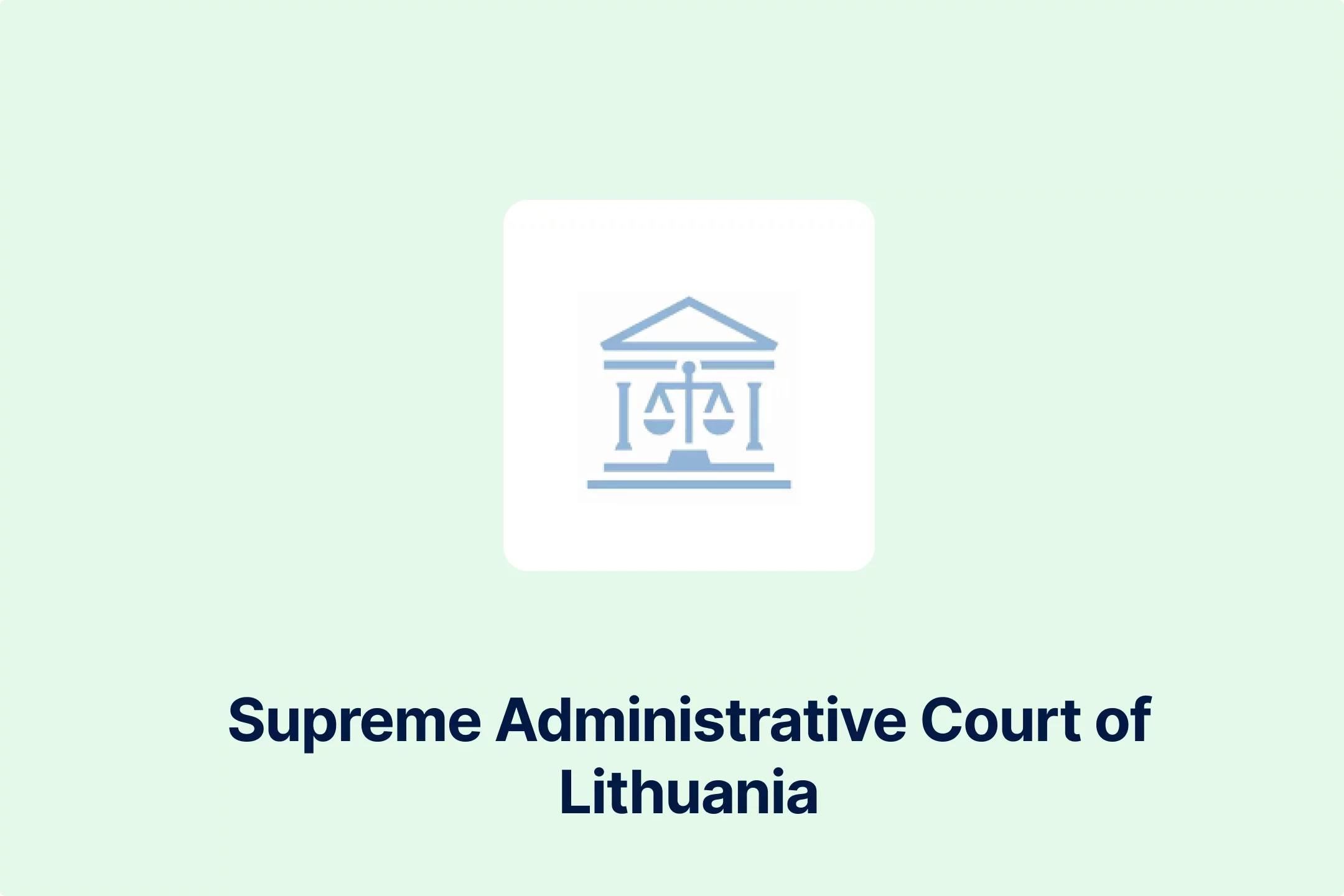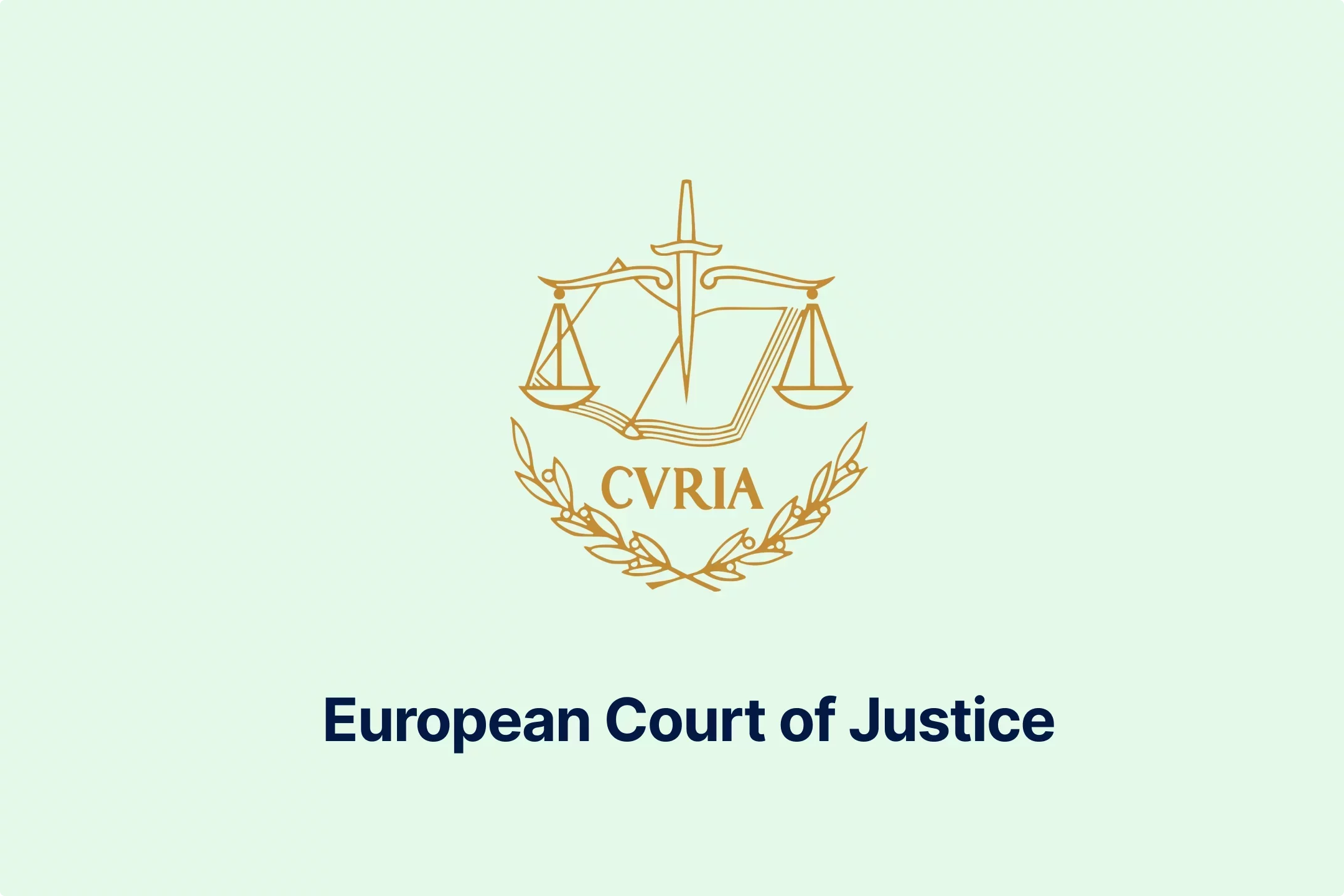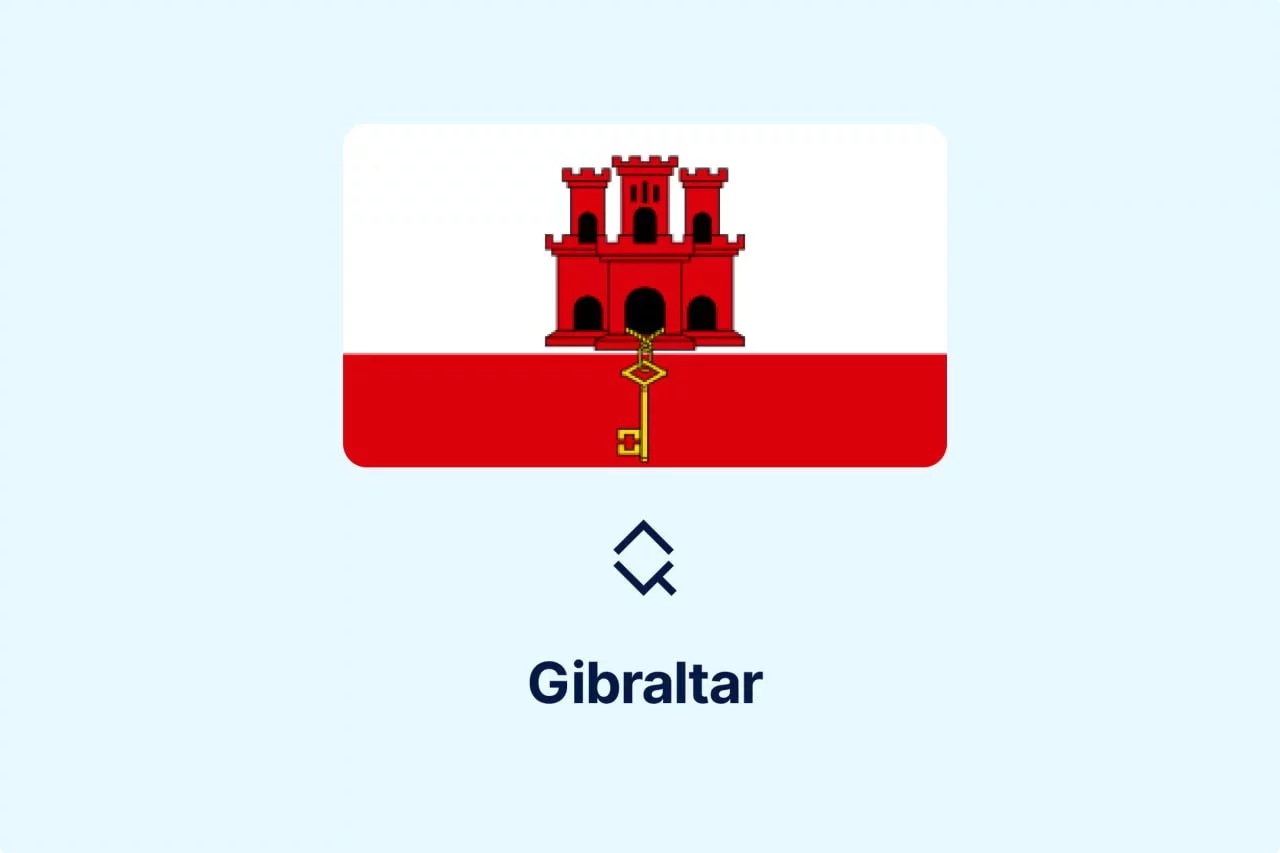Your Loans Just Got More Expensive: ECJ C-89/23 Declares Auctioning Pledged Goods a SEPARATE VAT Service!

Summary
The European Court of Justice (ECJ) ruled that auctioning pledged goods is a separate VAT service and not ancillary to credit granting, meaning it is subject to VAT.
This decision emphasizes the strict interpretation of VAT exemptions, requiring each supply to be analyzed independently for its VAT treatment.
The ruling provides important clarification for taxable persons, especially in financial services and other sectors with both exempt and taxable elements, to ensure VAT compliance.
🎧 Prefer to Listen?
Get the audio version of this article and stay informed without reading - perfect for multitasking or learning on the go.
The case between the Companhia União de Crédito Popular SA (CUCP), a Portuguese pawnbroking company, and the Portuguese Tax and Customs Authority (Tax Authority) revolved around whether commissions charged for auctioning pledged goods should be VAT-exempt as ancillary to the credit-granting activity or treated as a separate taxable service.
Even though there is clearly established EU case law that auctions of pledged goods are not part of the credit-granting service, the fact that Portuguese law specifically assigns the lender the responsibility for organizing the auction raises a question for the Portuguese Supreme Administrative Court (Supreme Court) of how these transactions should be treated.
Background of the Case
The CUCP provides loans secured by movable property, which is an exempt VAT activity under the Portuguese VAT Law. The activity included granting and negotiating credit. Additionally, when borrowers fail to repay their loans or retrieve their pledged items within three months, the CUCP sells the goods at auction and charges a commission. The commission is set at 11% of the auction price, and borrowers are responsible for paying it in accordance with national legislation.
After conducting a tax audit for 2010 and 2011, the Portuguese Tax Authority determined that the company failed to apply VAT to these auction commissions, arguing that the commissions were not ancillary to the VAT-exempt loan activity but instead represented a separate taxable service. Moreover, the Tax Authority reclassified the commissions as subject to VAT at the standard rate and assessed additional VAT liabilities of EUR 107,124.33 for 2010 and EUR 201,419.52 for 2011
In 2013, following the CUCPs' appeal, the Tax Authority upheld its earlier VAT adjustments. Additionally, in 2014, the Tax Authority dismissed the CUCP’s internal review and administrative appeal, claiming that the auctioning of pledged goods was not merely a secondary activity linked to the leading pawnbroking service but a separate economic activity with its own purpose. The rationale for such a decision was found in the European Court of Justice’s (ECJ) ruling in the Part Service (C-425/06) case.
However, the CUCP challenged the decision before the Administrative and Tax Court in Porto, which rejected the claim. As a result, the company appealed the decision before the Supreme Court. In its appeal, the CUCP claimed that the auctioning of pledged goods was inseparable from its core pawnbroking activity and exempt from VAT and that the sales commission did not represent payment for a service but rather a statutory fee.
The Supreme Court noted that, under established law, the commission remunerates the lender for organizing and executing the auction. Therefore, it constitutes payment for a private service rather than a public fee. Citing established case law, the Supreme Court added that auctions of pledged goods are not part of the credit-granting service and cannot be viewed as a single transaction with it.
More specifically, credit granting is possible even if a third party conducted the auction. Thus, the pledge contract is independent of the auction process in terms of substance and procedure. However, the Supreme Court also acknowledged that since Portuguese law specifically assigns the lender responsibility for organizing the auction, such an activity could be considered ancillary to the pawnbroking service.
Since the Supreme Court had doubts about interpreting this rule, it decided to pause the proceedings and refer a request for a preliminary ruling to the ECJ.
Main Questions from Request For Ruling
The Supreme Court referred only one question to the ECJ, asking whether the 11% commission paid to the lender under Article 25 of Decree-Law No 365/99, for the sale of pledged goods when a borrower fails to repay the loan, qualifies for the VAT exemption under Article 135(1)(b) of the VAT Directive, which corresponds to Article 9(27)(a) of the Portuguese VAT Code.
To put this as simply as possible, the Supreme Court sought clarification on whether the auctioning of pledged goods could be considered an ancillary service to the VAT-exempt activity of granting loans secured by pledges.
Applicable EU VAT Directive Article
The ECJ cited several articles of the EU VAT Directive relevant for this case, including Article 2(1), paragraphs (a) and (c), which specify that both the supply of goods and the supply of services for consideration within an EU country by a taxable person fall under VAT. Additionally, Article 73, which defines what the taxable amount includes, was also interpreted.
Furthermore, Article 78, which further clarifies that the taxable amount must also include related expenses, such as commissions, taxes, or insurance costs charged to the customer, was essential for settling this matter, even if agreed separately. Finally, a key exemption is provided under Article 135(1)(b), stating that an EU country must exempt from VAT the granting and negotiation of credit and the management of credit by the person granting it. Therefore, this article was also included in the analysis.
Portugal National VAT Rules
In addition to key provisions from the EU VAT Directive, the ECJ also identified which articles from national legislation are most important for this case. Therefore, the ECJ considered Articles 666(1), 1142, and 1150 from the Portuguese Civil Code.
Regarding the VAT Law, the ECJ underlined that Article 1(1)(a), 9(27)(a) and (b), and 16 were crucial. Nevertheless, the ECJ also had to include relevant provisions from Decree-Law No 365/99, which establishes the legal framework for conducting pawnbroking activities in Portugal, defines the rules for lending secured by a pledge, and the procedures for reclaiming and selling pledged goods.
Importance of the Case for Taxable Persons
Considering that this case delves into the VAT treatment of closely linked activities, a common situation, especially in industries like financial services, taxable persons may find the ECJ's rationale and helpful clarification helpful. Moreover, any other sector where exempt and taxable elements coexist may benefit from ECJ interpretation of applicable VAT rules, as it helps them determine whether certain services performed in connection with an exempt activity can be VAT-exempt, or if they should be taxed separately.
Analysis of the Court Findings
The ECJ began its analysis by stating that, according to EU-established case law, when a transaction involves multiple elements or acts, all circumstances must be considered to determine whether it constitutes a single supply or numerous distinct supplies for VAT purposes. Even though each transaction is generally treated as separate under Article 1(2) of the EU VAT Directive, economically inseparable elements should not be artificially split, as doing so could distort the VAT system.
Notably, a single supply exists when two or more elements provided by the taxable person are so closely linked that, objectively, they form one indivisible economic supply. Even formally distinct supplies that could be provided separately may still be treated as a single transaction if they are not independent. Such cases occur when a transaction comprises a principal supply and one or more ancillary supplies, which share the same tax treatment as the principal supply.
Key criterion for identifying an ancillary supply is whether it lacks an independent purpose from the average consumer's perspective. In other words, which is backed by the established case-law, a supply is considered ancillary if it serves merely to enhance the enjoyment of the principal service rather than being an end.
The ECJ added that national courts are responsible for determining whether a supply constitutes a single transaction based on the specific facts of each case. However, the ECJ acknowledged its responsibility for interpreting EU law to assist national courts in making that assessment.
Circling back to the Supreme Court's question, the ECJ stated that, under the EU rules, the granting of credit involves providing capital in exchange for remuneration, and the terms “granting and negotiating credit” must be interpreted broadly, not limited solely to loans offered by banks or financial institutions.
As the ECJ pointed out, the remuneration for granting credit is typically received through interest payments. However, under the established EU case law, other forms of consideration do not prevent a transaction from qualifying as the granting of credit in accordance with the EU VAT Directive. For example, financing the purchase of goods with repayment at an increased amount constitutes a financial transaction analogous to granting credit and is therefore VAT-exempt.
Nevertheless, the exemptions provided in the EU VAT Directive must be interpreted strictly, as they are exceptions to the general rule that VAT applies to all taxable services. Such reasoning leads to the determination that the auctioning of pledged goods after the borrower fails to meet contractual obligations for more than three months and the granting of the pawnbroker loan itself are separate and independent transactions for VAT purposes. However, it is up to the Supreme Court to make the final factual determinations.
The ECJ noted several reasons for making such a determination. Primarily, these two activities are not substantively or procedurally dependent on one another, as a third party could equally conduct the auction without affecting the credit arrangement. Additionally, selling pledged goods by auction is not a standard or automatic outcome of a pawnbroker loan. Furthermore, the auction serves a different purpose from the loan.
Such a determination also aligns with the principle that VAT exemptions must be interpreted strictly. Finally, the ECJ outlined that although the national legislation provides for the auction process and a related sales commission, this commission seems to represent compensation for organizing and executing the auction, rather than a public service fee.
Courts Final Decision
As its final decision, the ECJ concluded that the exemption in Article 133(1) of the EU VAT Directive must mean that the services related to organizing auctions of pledged goods are not ancillary to the main supply of granting credit secured by a pledge. Consequently, the auction-related services are treated as separate and independent transactions for VAT purposes, which means they do not share the VAT exemption applicable to credit granting.
Conclusion
The ECJ decision in Case C‑89/23 highlights the importance of interpreting VAT exemptions strictly and analyzing each supply independently to determine its VAT treatment when applying the EU VAT Directive. Moreover, the rationale in the ruling helps taxable persons distinguish between exempt and taxable supplies when multiple related services are involved, thereby reducing the possibility of non-compliance and costly, lasting tax audits and court proceedings.
Source: Case C‑89/23 - Companhia União de Crédito Popular SA v Tax and Customs Authority, Portugal, EU VAT Directive, Case C‑425/06 - Ministry of the Economy and Finance v Part Service Srl

Featured Insights

Burkina Faso FEC E-Invoicing Mandatory July 2026
🕝 February 24, 2026More News from Europe
Get real-time updates and developments from around the world, keeping you informed and prepared.
-e9lcpxl5nq.webp)




-ulcnia30z1.webp)



-3rcczziozt.webp)

-rvskhoqpms.webp)




-a5mkrjbira.webp)

-ivkzc1pwr4.webp)




-hssrwb5osg.webp)



-c06xa1wopr.webp)









-webajrr4ny.webp)
-evibmwdwcn.webp)
-7acdre0hop.webp)

-lcgcyghaer.webp)
-ol6mdkdowg.webp)
-aqdwtmzhkd.webp)

-njgdvdxe2u.webp)



-i6rki3jbad.webp)
-hdwgtama05.webp)

-atbhy5fyxv.webp)






-zp2n6zixoa.webp)
-oa1ynbm4sn.webp)


-lltkno6txy.webp)



-do38odrqnq.webp)

-t409oldqzt.webp)

-hordopb6xh.webp)

-ooimnrbete.webp)

-lwb5qpsily.webp)


-eumafizrhm.webp)

-mtqp3va9gb.webp)

-3ewrn1yvfa.webp)
-591j35flz2.webp)
-huj3cam1de.webp)


-hafis0ii23.webp)

-qseaw5zmcy.webp)



-qzsah2ifqx.webp)


-69rzooghib.webp)
-wrvng98m0g.webp)


-psucycuxh2.webp)
-klyo8bn5lc.webp)




-6wv5h5eyyd.webp)
-tfgg78rbid.webp)
-a6jpv9ny8v.webp)
-qhdbapy0qr.webp)


-owvu7zoc13.webp)


-h28jrh1ukm.webp)

-wl9bl1rw3a.webp)

-2w76jtvtuk.webp)

-c0uvrmrq9j.webp)



-pofe7ucwz3.webp)



-5cc23ezxyf.webp)
-rrmabbekeb.webp)








-iyyeiabtaf.webp)
-c8rbjkcs01.webp)
-nilkffjhah.webp)

-hikakq55ae.webp)

-z1d60bldtg.webp)
-d1a0q6n7mp.webp)
-viip8nvoeh.webp)
-bvv1otliox.webp)



-de8hdb1bn3.webp)
-7xsxxoypnx.webp)

-cm0opezg73.webp)
-0tovsdupmi.webp)
-subxdamdj6.webp)


-gly6ablwnh.webp)
-gkduqhwbzh.webp)
-qpe1ld9vcj.webp)
-8noukwsmba.webp)
-aka29tuhkt.webp)


-fisvs27yrp.webp)


-mp0jakanyb.webp)

-aivzsuryuq.webp)



-o7f4ogsy06.webp)

-zjja92wdje.webp)
-hrbhdts8ry.webp)
-qtdkwpgkug.webp)


-cf8ccgah0p.webp)
-0em3cif5s6.webp)






-ptzesl0kij.webp)

-tfzv42pyms.webp)







-uodv7sfbih.webp)
-bbrdfmm9qf.webp)



-m2tl8crfqr.webp)




-1awbqjgpjs.webp)
-avbjsn1k1g.webp)


-0h8ohkx6s0.webp)



-wfmqhtc7i6.webp)
-7wljbof2zo.webp)

-eqt97uyekl.webp)
-wzw9mcf563.webp)

-z4oxr6i0zd.webp)




-l0zcrrzvhb.webp)
-fhtic1pwml.webp)

-iipdguuz9p.webp)
-nkhhwrnggm.webp)
-pltqwerr3w.webp)

-nn6mtfbneq.webp)

-tmnklelfku.webp)



-8z1msbdibu.webp)
-7g16lgggrv.webp)



-lxcwgtzitc.webp)
-9mc55kqwtx.webp)


-xla7j3cxwz.webp)
-jrdryw2eil.webp)






-t9qr49xs2u.webp)


-qjopq5jplv.webp)



-vune1zdqex.webp)

-qsozqjwle2.webp)
-rgjta7iwiv.webp)

-zb6bxxws47.webp)
-lyfjzw4okp.webp)

-ogpfmol5m1.png)


-czisebympl.png)

-zetvivc79v.png)
-ud7ylvkade.png)
-qizq6w2v5z.png)







-ihr6b4mpo1.webp)
-k1j4au0ph6.webp)
-swxxcatugi.webp)


-ig9tutqopw.webp)

-tauoa6ziym.webp)

-spr0wydvvg.webp)

-xfuognajem.webp)





-u2nv5luoqc.webp)








-opuxpan2iu.webp)




-kwttsfd8ow.webp)
-8u14qi10nj.webp)

-wjpr96aq5g.webp)

.png)

.png)


.png)


.png)



.png)
.png)
.png)
.png)
.png)

.png)
.png)




.png)
.png)




































































































































